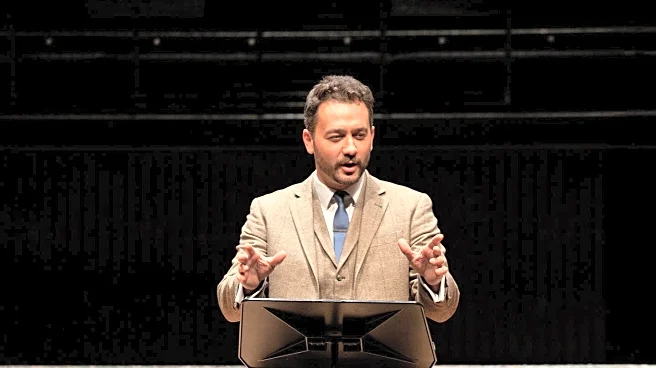What's Happening?
South Africa's bioeconomy is facing challenges due to the innovation paradox, where the need for innovation is high but resources are limited. Charles Reed, cofounder of biotech startup Mycosure, highlights the struggle of small and medium-sized enterprises to scale their innovations. Despite the country's entrepreneurial talent, the ecosystem lacks the necessary infrastructure and support to nurture innovation effectively. The World Bank describes this as the innovation paradox, where economies needing innovation for growth are least equipped to invest in it. Reed emphasizes the importance of public-private collaboration and targeted support to overcome these hurdles. Successful examples from Vietnam and Chile demonstrate how strategic investments in innovation ecosystems can transform economic trajectories.
Why It's Important?
The innovation challenges in South Africa's bioeconomy have significant implications for the country's economic growth and global competitiveness. Small and medium-sized businesses contribute substantially to GDP and employment, and strengthening support for innovation could amplify this impact. Biotechnology, in particular, presents opportunities for economic diversification, job creation, and new export markets. Addressing the innovation paradox is crucial for unlocking the full potential of South Africa's bioeconomy, which can drive sustainable growth and tackle environmental and social challenges. Collaborative efforts between policymakers, research institutions, and businesses are essential for building a thriving innovation ecosystem.
What's Next?
To overcome the innovation paradox, South Africa needs deliberate alignment and investment in its innovation ecosystem. Strengthening funding channels, fostering collaboration, and supporting early-stage ventures are critical steps. Partnerships with research institutions and private sector initiatives can provide the necessary infrastructure and expertise for scaling innovations. By bridging funding gaps and reducing barriers to commercialization, South Africa can position itself as a leader in the global bioeconomy race, securing a prosperous and sustainable future.
Beyond the Headlines
The innovation paradox highlights the need for a coordinated effort to build a robust bioeconomy in South Africa. By leveraging public-private partnerships and targeted investments, the country can create thousands of new jobs, attract foreign investment, and establish itself as a global leader in sustainable biotechnology. Innovation is not a luxury reserved for developed economies; it is a strategic necessity for inclusive, sustainable growth.









